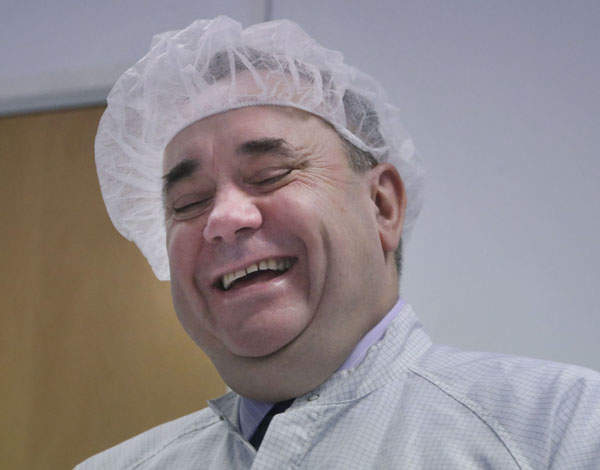
Author: by Stephen Hill

The leader of the Scottish National Party is a political motor-mouth linked to an over-active brain, spouting answers at everyone who challenges his lifetime cause of independence for his new Soviet Socialist Republic of Scotland.
As his SNP-driven referendum for secession from the UK – itself a successful monetary, trade and defence union for over 300 years – looms ever closer in this coming September, some real questions to his unlikely stance are being posed.
The bully Salmond’s response is that ‘We Scots refuse to be bullied!’ Or in other words, the motor-mouth hasn’t got any answers that begin to make any economic sense.
The questions, posed by the governor of the Bank of England, the chancellor of the Exchequer, Scotland’s biggest investment house and, indirectly, by the chancellor of Germany, are simple:
> What currency will you use?
> Who will be your central banker of last resort?
> What financial regulation will you have?
> What will your taxes be higher or lower, after the cancellation of the UK Barnet Agreement’s £20 billion a year freebie?
> How will you finance your external debt obligations? Do you even know what they will be, post-secession?
> Will your application to join the EU be accepted, and when, and how will your trade be handled meanwhile outside the EU, given its 8,000 trade agreements?
> What makes you think that the euro will work for Scotland, when it clearly wouldn’t have for England, your financial saviours?
Vote Salmond for an impoverished and bankrupt Scotland: 6,000 jobs on the UK’s nuclear submarine fleet on the Clyde to go south; thousands of jobs will go in the financial services sector and head south; head offices, and their chequebooks for corporation tax, will do the same. Last week TSB relocated south, while BP announced a suspension of investment, and now Shell are saying do not secede.
Hundreds of estates and rivers subsidised by the English will suffer or be sold off, and welfare payments, currently £1,600 pa higher than in England, will fall below the UK average. And that’s just for starters. And to cap it all, the Royal Bank of Scotland announced its sixth straight loss – a staggering £8.2 billion!
In a competition for one to do most economic damage in 2014, it’s a close-run between Salmond and the man who crashed Russia’s stock market, Vladimir Putin. But will Salmond make it permanent in September?






